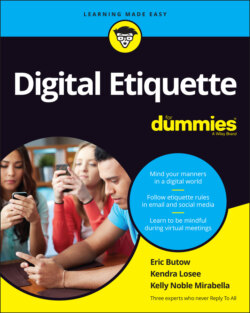Читать книгу Digital Etiquette For Dummies - Eric Butow - Страница 43
Looking at federal laws
ОглавлениеThe Communications Decency Act (CDA), passed in 1996, has a section numbered 230 that protects freedom of expression on the Internet. More specifically, the section provides immunity from liability for website platforms when it comes to third-party content, such as people posting on a social media platform.
What’s more, Section 230 includes a Good Samaritan section, which protects operators of interactive computing services from civil liability if a service removes or moderates that third-party material, even if the speech is constitutionally protected.
Where did this section come from? Let’s start with one of the earliest Internet service providers (ISPs): The World, launched way back in 1989.
The World is still online, all these decades later; you can visit the website at https://theworld.com.
As ISPs began to grow toward widespread use in the early 1990s, a pair of lawsuits were brought against two national ISPs — CompuServe and Prodigy — by users who felt their speech was being suppressed illegally. The question at the heart of the lawsuit? Were ISPs publishers or distributors of user content?
The CDA and Section 230 were designed to answer that question, stating categorically that ISPs were mere distributors of content and therefore had no editorial control over the content being distributed. The CDA soon found itself being challenged in the courts, however, and eventually found itself in the Supreme Court. In 1997, the Supreme Court unanimously struck down the anti-indecency provisions of the CDA but left Section 230 alone. (For more on the story, check out www.eff.org/issues/cda230/legislative-history.)
The end result is that Section 230 is widely hailed as the legislation that enabled the Internet and the web to grow into the indispensable communication medium we have today. And, despite recent court challenges to Section 230 (especially around technology companies’ control over political discussions), several court decisions have found that the section is constitutional.
If you want to look into the various court cases in detail, the Legal Information Institute at Cornell University has both the US Code and notes on its website (www.law.cornell.edu/uscode/text/47/230#; see Figure 2.1).
FIGURE 2-1: Title 47, Section 230 of the US Code on the Legal Information Institute website.
